I suppose we all have seen the horrific but also fascinating videos and pictures from last week´s storm ravaging the Balearic islands. The aftermath of which was heartbreaking for sailors to watch: Dozens of yachts being grounded, ripped open by breakwaters and stones, washed ashore, dismasted and serverly battered. Some sunk, some so badly damaged that a repairs make no sense anymore and some others totally destroyed.

It was also fascinating to watch how fast insurance companies, salvage firms and specialists reacted. It didn´t take a day and the stream of posts in social media channels changed from yacht wreckage and sailing gore to damage control, evaluation and at last salvation efforts. One of the major players is the German insurance company Pantaenius. Their specialiast Ole Pietschke, you know him from another article depicting the aftermath of a severe Baltic storm, flew in no 24 hours later. I am happy that he found some time in between the hard work to tell us more about what happened.
Talking to Ole Pietschke of Pantaenius
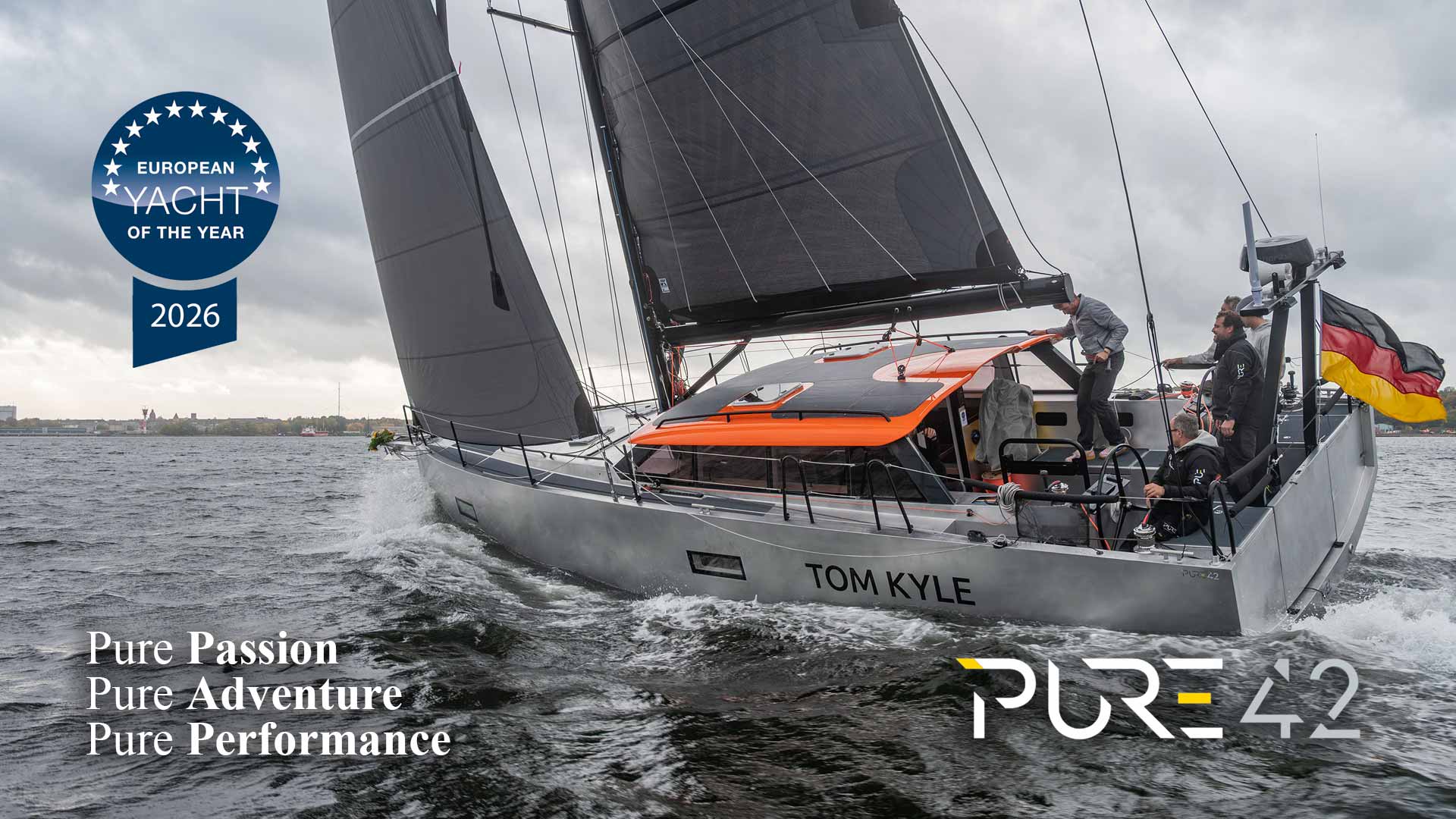
NO FRILLS SAILING.com | Lars Reisberg: „Ole, I´ve seen on facebook that you´ve just been back from Formentera you habe been among the first of the quick reaction-force of insurance companies and specialists, so to say. What had been your first impressions upon arrival on the islands?“
Pantaenius | Ole Pietschke: „Yes Lars, just back and still a bit dizzy. I boarded the very first plane on Thursday right after the storm was over and flew to Mallorca at first. Later I went on to Formentera. There I´ve met with our specialist colleagues of MCS – Marine Claims Services Spain – with whom we immediately started to work. Of course I was in awe seeing the extend of what mother nature is capable of! Although I have to cope with these things regularly in my job, it is always kind of mindblowing and overwhelming. But honestly, there isn´t much time to contemplate: In my head I was already starting to plan the next steps, what and when to do. You have to remain calm and very rational, go down your list and do your job. Although, of course, as a human being I take notice of the suffering and hardship of the people who are affected and it surely does have an impact on me.“
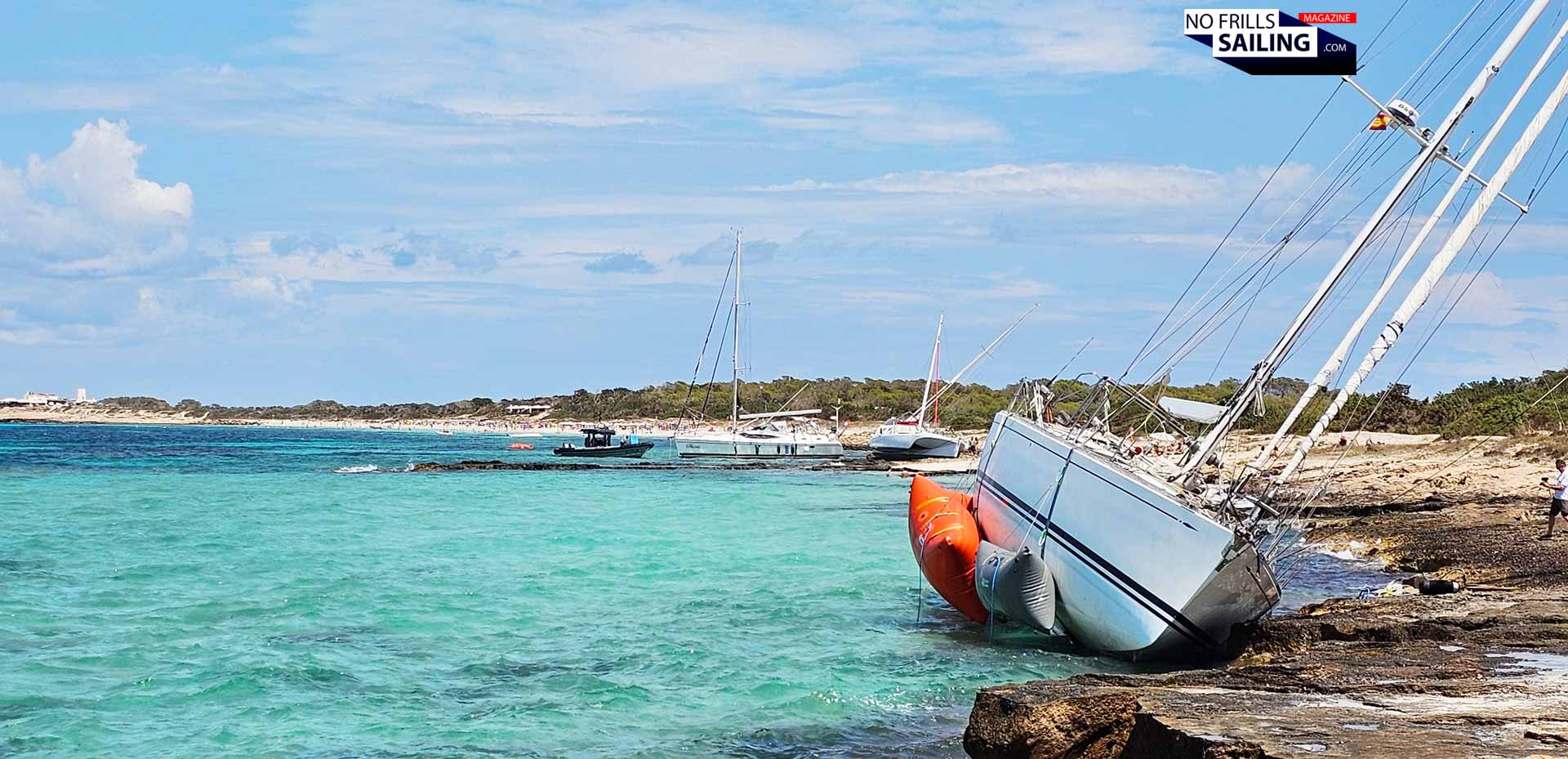
NO FRILLS SAILING.com: „Re-watching the videos of the storm, I must admit, it was mind-boggling to see and think about the sheer violence of winds exceeding 50 knots, big yachts being tossed around … What was it that happened there exactly? I mean, had it been some special exceptional circumstances which caused this storm?“
Pantaenius | Ole Pietschke: „Well, apparently: No. What was taking place is called a DANA or „La gota fria“ in Spanish. The English would call it a „cold drop“, which has two meanings: A part of a cold front is closed off from the main system, surrounded by warm – or in this case – hot air. On the charts you can really see a drop-shaped mini-system. A second meaning is the verb „to drop“, because inside this mini-weather system the enclosed cold air really drops down to the ground. So it is cold dropping down literally. By doing so, through friction, locally restricted and time-wise very short – but hefty – thunderstorms, wind-speeds and torrential downpour is created. This is by no way an exceptional event: It is a normal occurence in the area and as Spanish would say: „The summer ends with a big bang“. Nevertheless, talking to some locals I was told that even the old guys were shocked and stunned by the violence and intensity of the last „cold drop“. And we could see this with our own eyes, at least what this „gota fria“ left in its wake.“
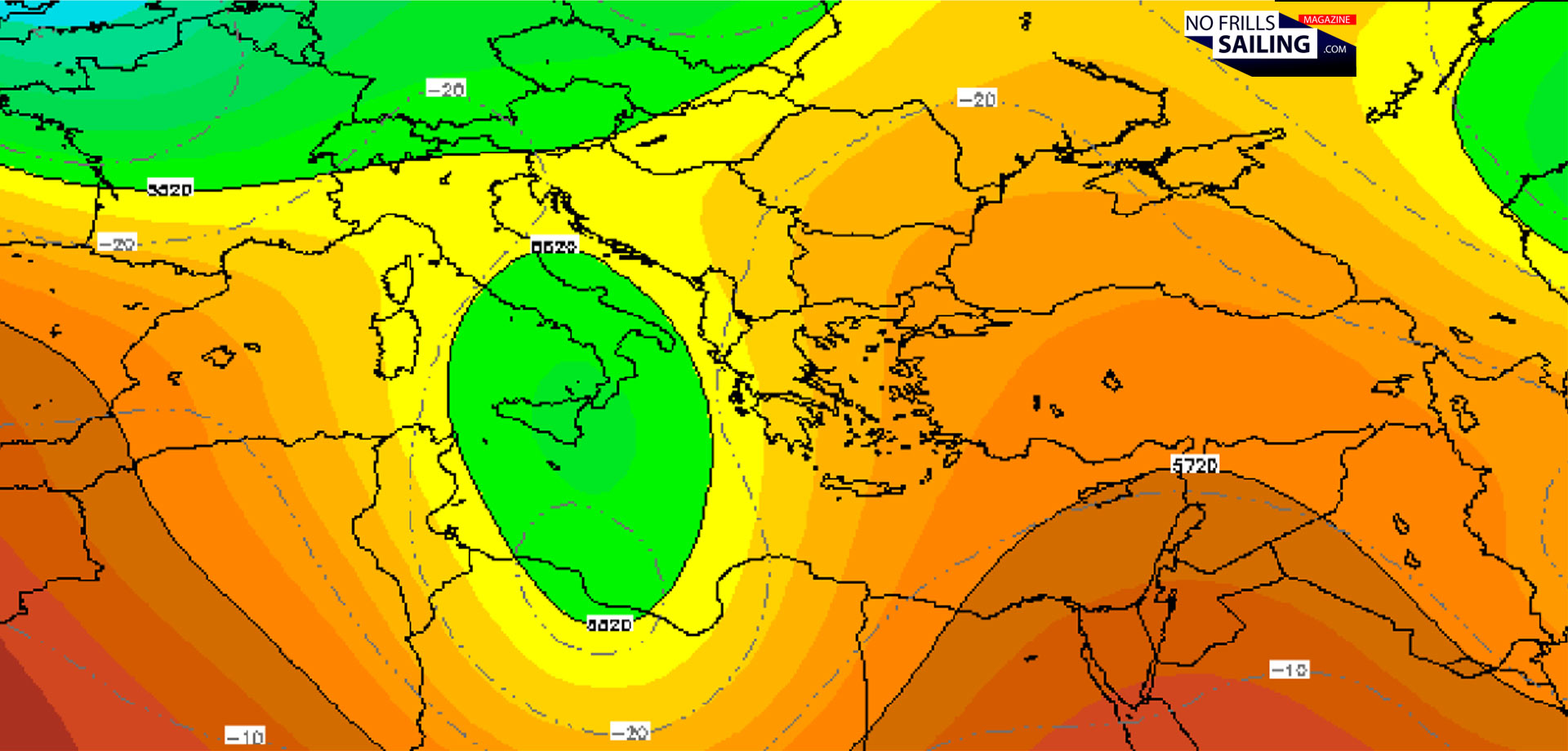
NO FRILLS SAILING.com: „Apparently there was total mayhem in some areas, marinas an anchorages as well. Had there been „just“ damage to property and infrastructure or had people been injured as well?“
Pantaenius | Ole Pietschke: „Luckily, as far as I know, there hasn´t been any loss of life or injured people. At least I can say this for our company´s clients. My Spanish colleagues said that they had to treat one skipper in hospital with a broken arm and some broken ribs. Apparently, he couldn´t get out of his yacht soon enough. But other than that, thank God, it´s „just“ damage to property. In this, we have a lot of groundings as you may see on my pictures. But by far exceeded by many, many lightning strikes with often catastrophic damage to at least the electronic systems aboard the boats. Especially big yachts with tall masts have suffered the most.“
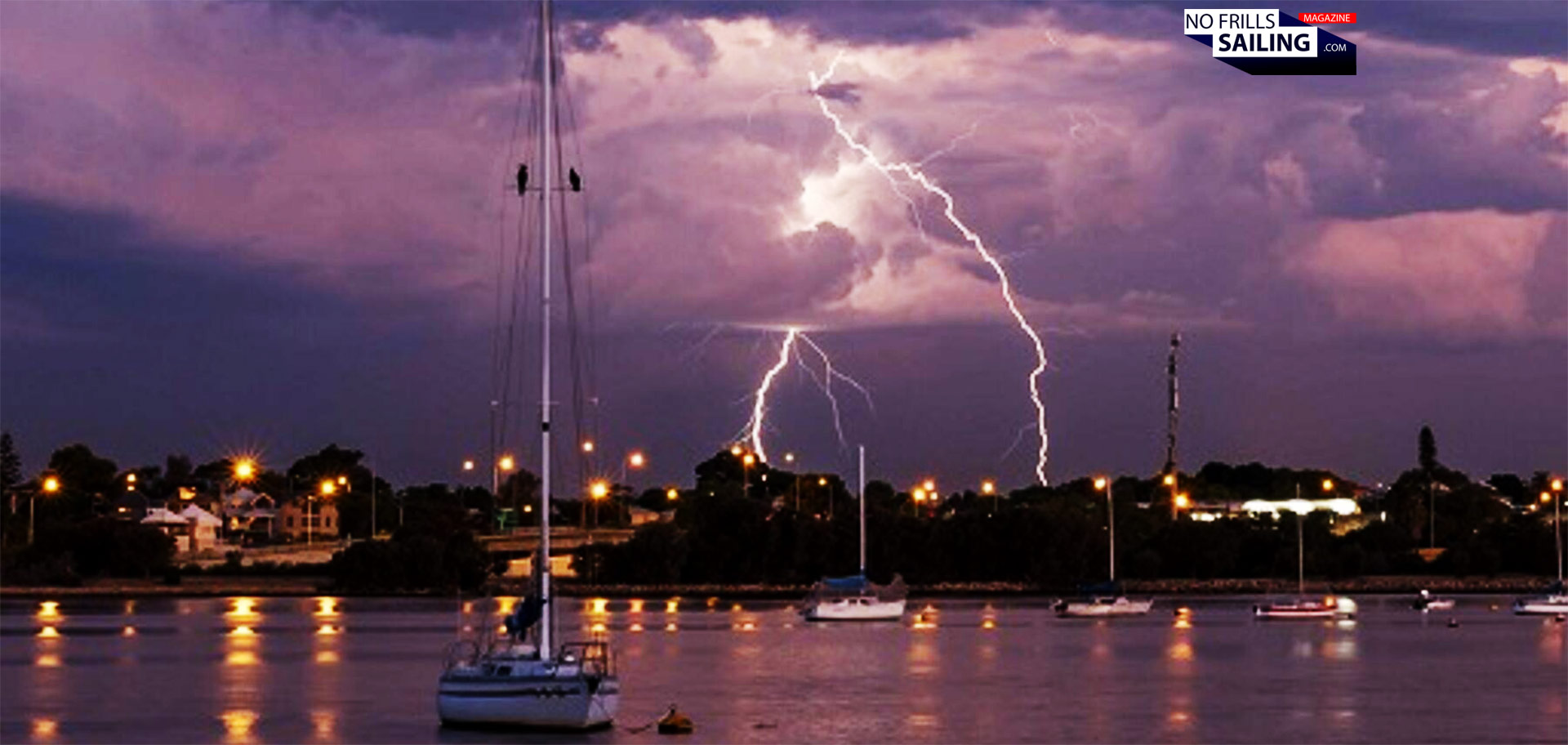
NO FRILLS SAILING.com: „There is a lot talk going on about climate change and how it will or may affect sailing. What´s your and your company´s stance on this? Do we have to cope with more extreme weather in the future? What are the statistics of Pantaenius revealing?“
Pantaenius | Ole Pietschke: „Of course, Lars, this is a question best suited for a meteorologist and climate specialist. We as insurance company are first of all considering climate change a scientifically proven fact. This means that – you are right – extreme weather events are going to be more numerous in the future but also the severity is going to increase. What our statistics show with absolute clarity is a surge in lightning damage to boats. But I have to say that this increase is more a product of the yachts being outfitted with much more and more sensitive, fragile electronic technology. But there might as well also be a correlation with increasing weather extremes.“
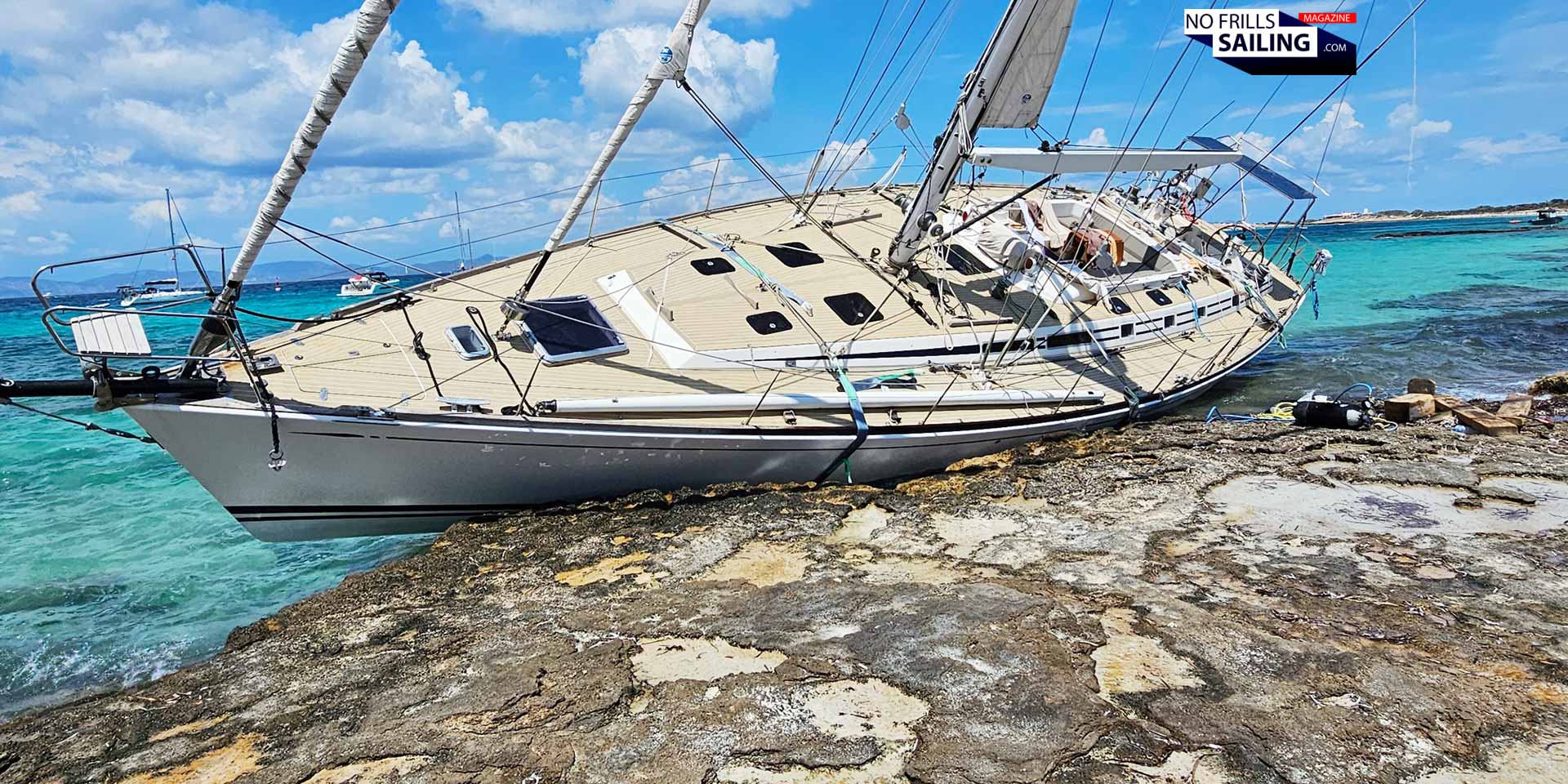
NO FRILLS SAILING.com: „Which role does the human factor play in this context? I personally have the feeling that more and more people buy a boat these days who aren´t properly trained, who cannot operate their yachts in a seamanly manner or are just careless. What is your opinion or the stance or Pantaenus on this?“
Pantaenius | Ole Pietschke: „Well, to be very clear and objective at first: Being careless ultimately means that somebody acted grossly negligent. This would trigger some serious consequences when it comes to insurances. But this is not often the case, to calm you down a bit. We are observing that in most cases the damage done hasn´t got this one single major cause but that it´s mostly an unfortunate chain of many smaller things happening which is causing the bad outcome. Regarding all the newbies in sailing. Well, we know from our partners in the business that especially sailing schools – like apparently any other business as well – have big time problems acquiring skilled sailing-trainers to boost the education and certification of new skippers. That´s a problem right there, yes. On the other hand, I think it should be customary for any skipper, be it an ex-landlubber or the old salt, to utilize professional tools. For example, all those the free weather forecasts by Google may be generally useful, but you should opt for professional services with a local focus. Any meteorologist would confirm that general forecasts cannot be used to derive local forecasts from. It´s just not meant to work that way. I want to emphasize that we as yacht insurance specialsts and the whole business of course welcome all those new sailors and skippers and there is of course a point saying that a newcomer simply cannot draw from any own experience.“
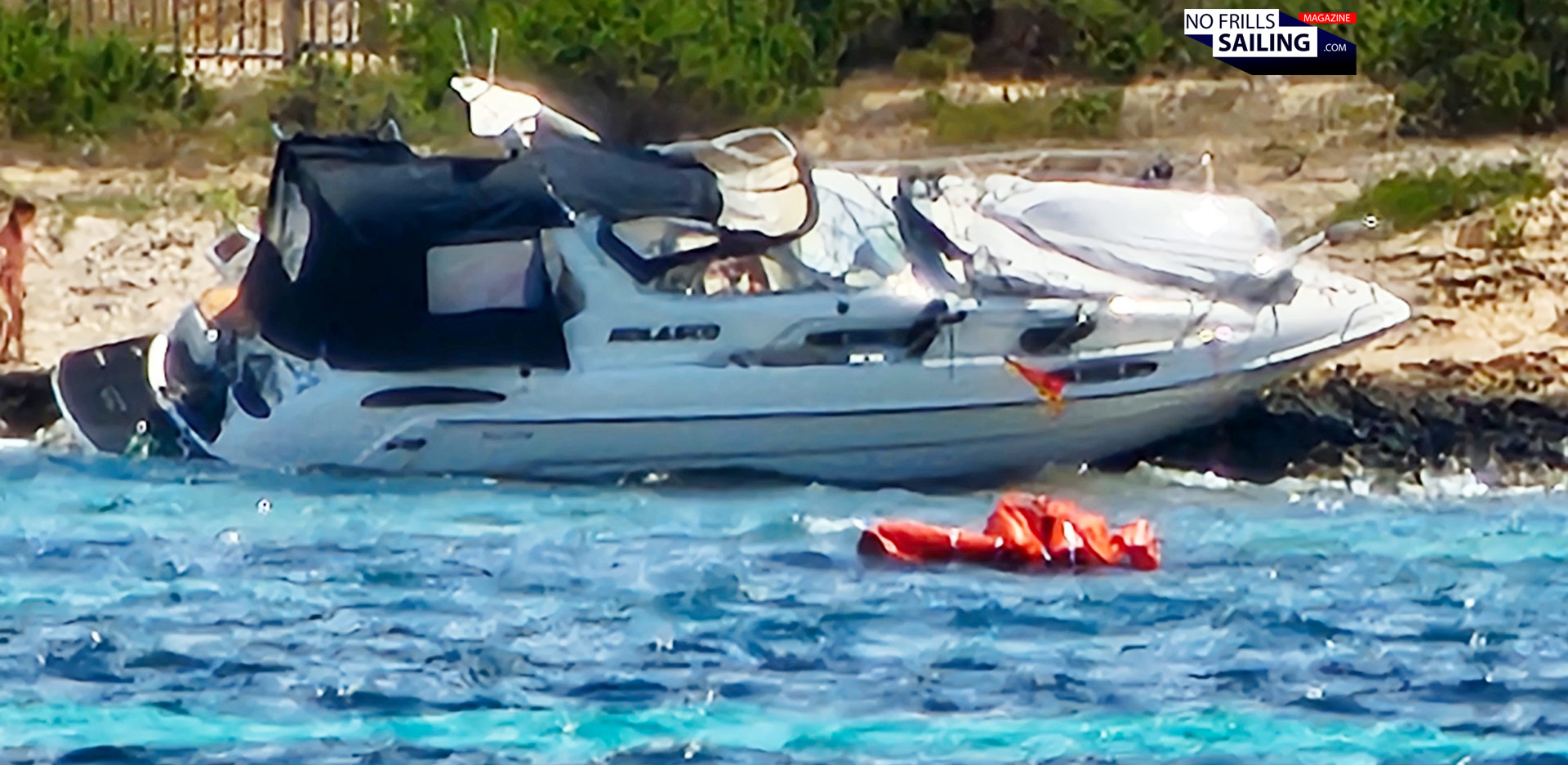
NO FRILLS SAILING.com: „What bothers me thinking of this very storm event: How could it be that an apparently so frequent and common event like this which indeed had been predicted and had been warned of in advance inflict so much damage? I mean, there have been a lot warnings and still …“
Pantaenius | Ole Pietschke: „Yes, you are right. This cold drop-event had been predicted and there were many warnings. Well, I cannot say for sure why so much damage had been done. I can only state that any sailor must adhere to those warning, take them seriously and prepare his boat. If you are alien to the locality, ask the locals. Often just by observing you can take action. I mean, there will be a reason if nobody else is going out. There will be something behind it when sailors start to secure their yachts with extra lines. When fishermen – usually the last not to go out – are securing their boats and take action. This should be a big red signal for you to do the same! I would also strongly recommend not to anchor during a storm, at least not in flat waters. With wind speeds in excess of 50 knots and sometimes with a long fetch, a huge wave pattern can build up: We´ve seen many anchors being ripped out of the ground like noting or lines simply snap. But also be aware that you may be hit whilst snug in a supposed safe marina. We´ve seen most of the lightning damage in harbors. In the end, Lars, our beloved passion is an outdoor-sport. We are subject to what nature prepares for us. There is always some risk: You can be prepared, but you can never make it go away.“
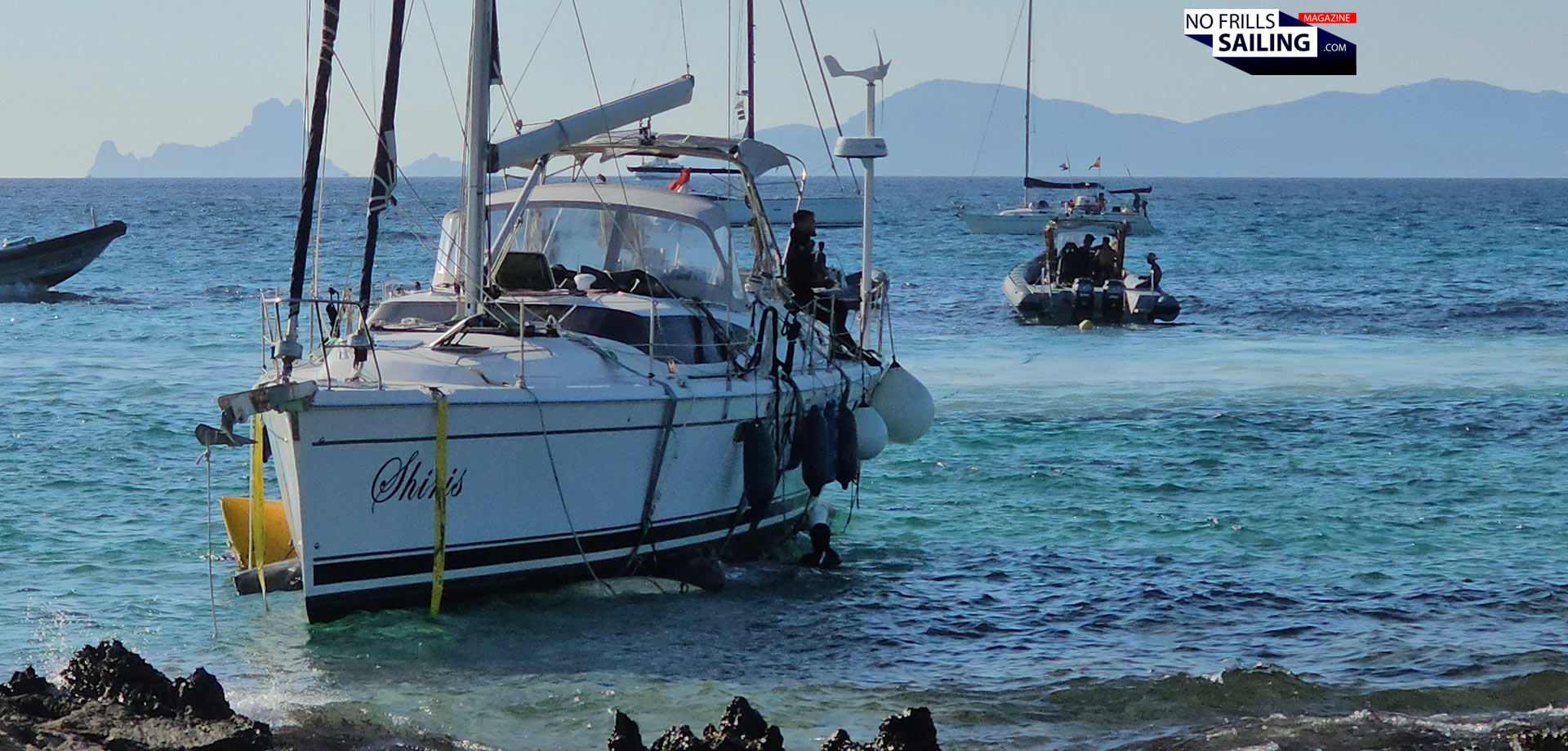
NO FRILLS SAILING.com: „The main bereaved after such a storm are of course the boat owners and sailors. But also your company in a way „suffers“: What does Pantaenius actively do to maybe minimize at least the aftermath of such events? And secondly: What do you think the future will bring for us pleasure skippers insurance-wise?“
Pantaenius | Ole Pietschke: „First of all, Lars, we are an insurance company. This is the core of our existance and the reason why Pantaenius was founded back in 1899! So, we are not suffering at all, on the contrary, we are happy to provide assistance, compensation and thus some relief to our customers! Talking about our activities in prevention, well, there´s a lot we do actually! We even offer a lot of our experience to non-clients and the general sailing public: Our social media channels for example, lots of free leaflets covering every single yacht safety-aspects. We have a strong focus on fire prevention, which is by far the biggest threat to boats. Talking of the future, well, let´s put it this way: If it turns out, proven, that for specific regions in maybe specific times of the year certain damaging weather phenomena will increase in both severity and occurance, then insurance companies will have to and most certainly will react. This could be for example some restrictions of travel for a certain period of time in the year. Which is nothing new, by the way. But if you ask me, this is something that is still far in the future. It is certainly not as dramatic as it is partially publicised.“
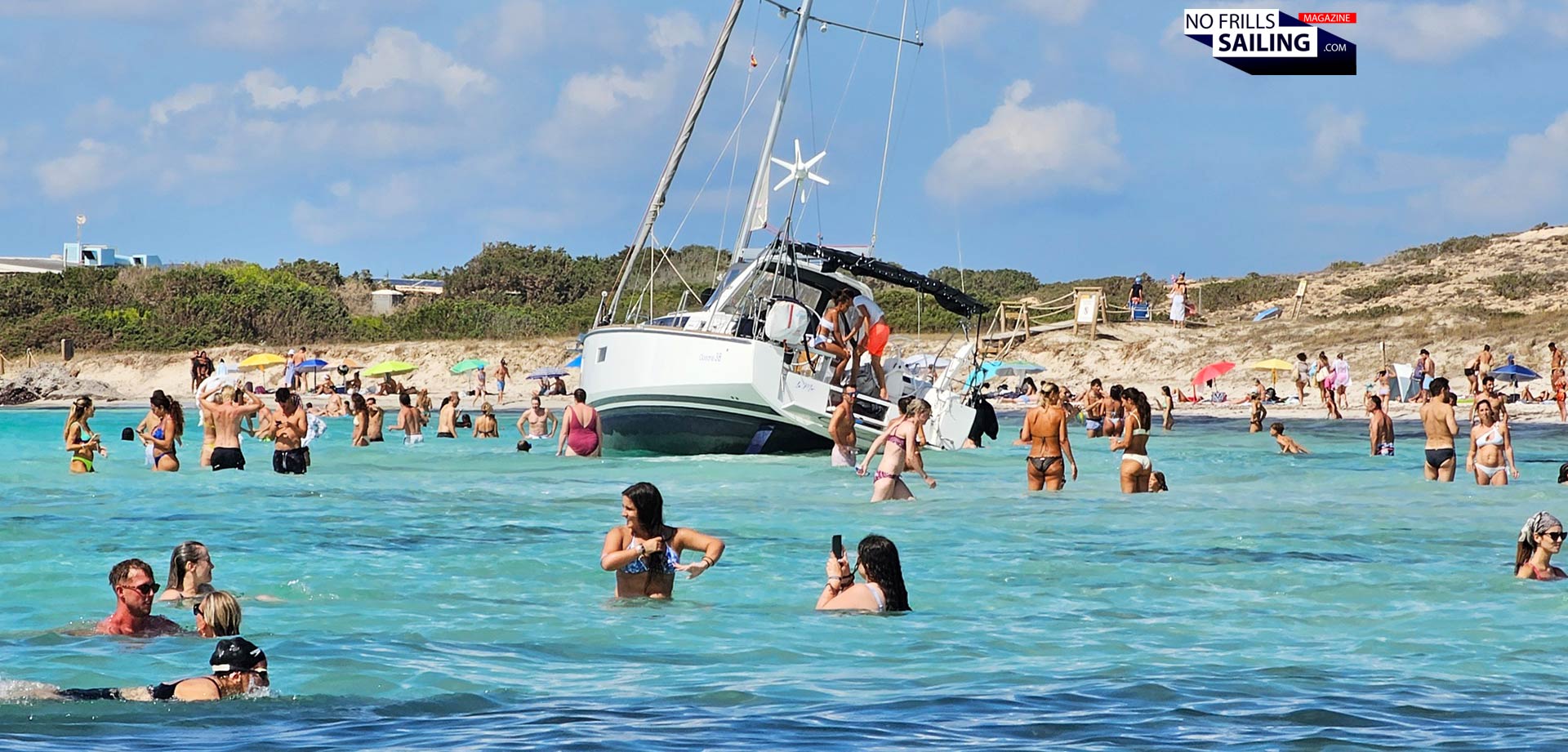
NO FRILLS SAILING.com: „Last not least: You are a sailor yourself, right? How has working for Pantaenius and especially having to deal with such horrendous events changed you style of sailing, your code of conduct as a good skipper? And what would you recommend to people just arriving on their newly bought boats, starting their careers as skippers?“
Pantaenius | Ole Pietschke: „As everyboody working at Pantaenius I am a sailor, yes. But due to the heavy workload I had to skip sailing, which is a very time-consuming passion. In fact, I refitted a once storm-stricken vessel, a power boat, which I use also far too less to be honest. But yes, I try to be on the water in my spare time as well. Working for Pantaenius has made me maybe become a bit more humble. I certainly prepare myself much more intensive before a sailing trip because I know all too well whoch consequences negligence can have. As for the newcomers, it´s commons sense I´say: Grab yourself someone who knows his way around!”
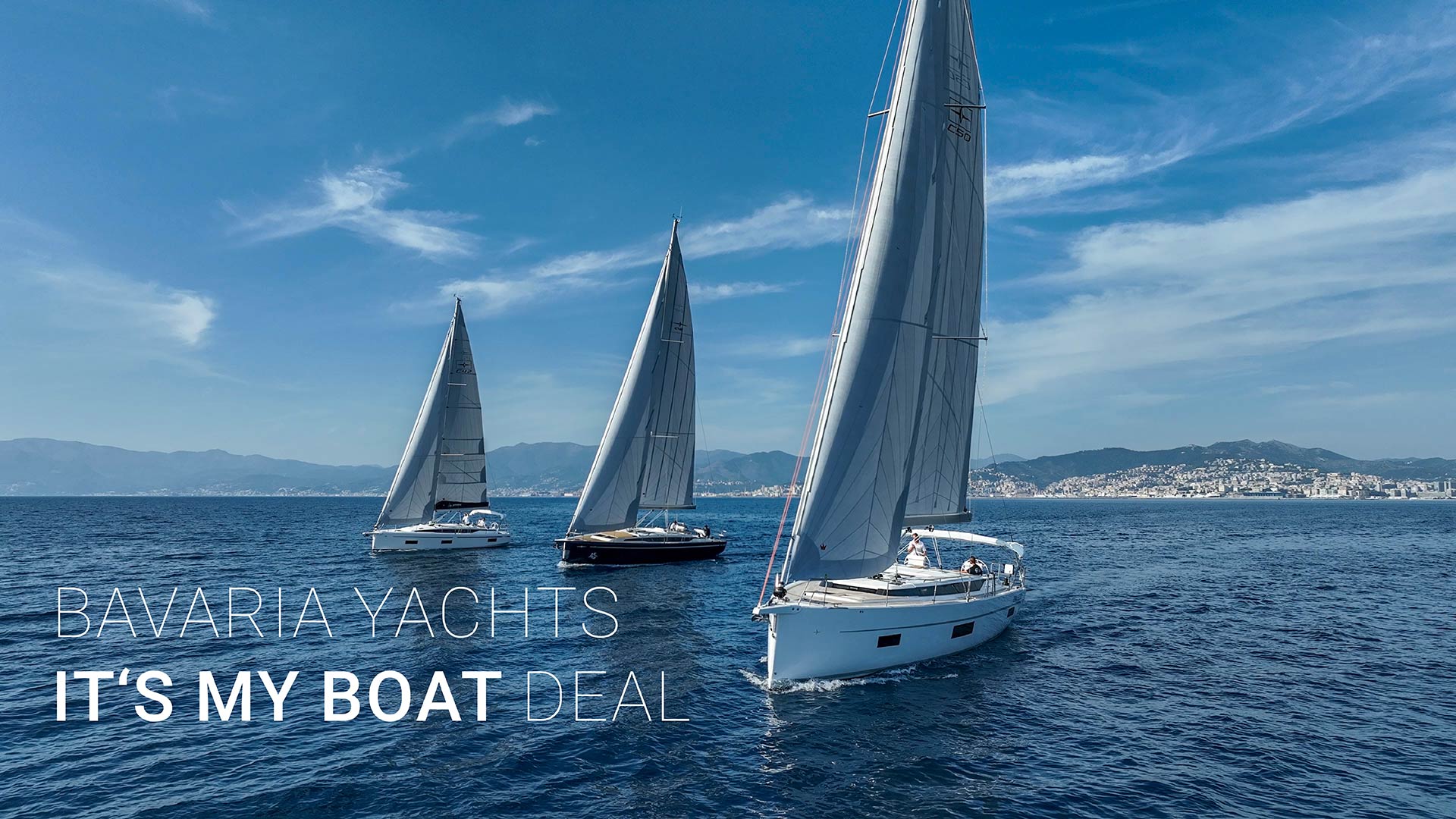
Learning from other skippers
Pantaenius | Ole Pietschke: “Like a trained, experienced sailor. Ask a lot of questions, try to participate from their decades of sailing experience and good seamanship. Also, don´t stop after having acquired the basic sailing licenses! There are so much more courses and certifications you can go for – which will not just improve your skills as skipper and sailor, but these are really fun challenges to tackle, creating lots of fun. And in the end: It´s not the amount of books you read, the films you watch and even not the certificates you collect. The miles make a sailor. So – go out, make your own experiences and you will grow as a seaman.“
Thanks so much, Ole, for these incredible first hand insights! I sincerely hope that you won´t have to quick-board a plane again so soon!
Pictures © by Ole Pietschke / Pantaenius yacht insurances
You might be interested in these related articles as well:
Storm aftermath: A totally destroyed marina full of wrecks
Winds of the Mediterranean: Bora!
At Pantaenius headquarters in Hamburg: Talking yacht insurance


